Geomechanics Blog Posts
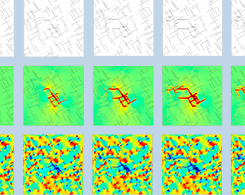
Fully Coupled Hydromechanical Modeling of Fractured Media
Dr. Qinghua Lei of ETH Zürich demonstrates a novel method for modeling fully coupled hydromechanical processes in fractured media with 2 examples: fluid injection and underground excavation.
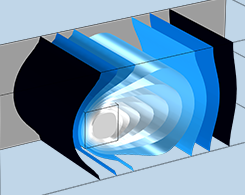
Analyzing the Impact of a Melting Frozen Inclusion
One example of the effects of climate change is the melting of permafrost in northern boreal regions. In this blog post, we show an example of a melting frozen inclusion in a porous medium.
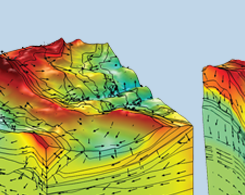
Integration of Geological Structures into Regional-Scale Groundwater Models
To study the dynamics of hydraulic processes at different scales, geotechnical researchers need to be able to integrate complex geological structures into their hydrogeological models.
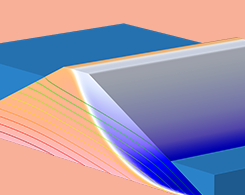
Analyzing Slope Stability Through the Shear Strength Reduction Method
Dams that are poorly designed or constructed are likely to fail. However, geotechnical engineers can account for the stability and reliability of a dam long before the structure is even built.
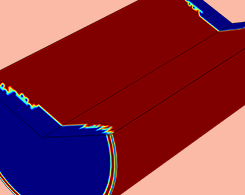
Analyzing Triaxial Testing Methods for Geomechanics
Triaxial testing of soil is important when determining the structural stability of a tunnel, dam, or building. Geomechanics simulation can help ensure that triaxial testing methods are up to par.
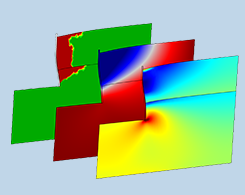
Predicting Deformations in a Bank Protection Structure with Simulation
To predict how a bank protection structure within the Yangtze River in China would deform under certain conditions, a group of researchers turned to geomechanical analysis.

Can a Stiffness Be Negative?
Have you ever encountered an FEM formulation where the force does not monotonically increase with displacement? We discuss some examples of this behavior: negative stiffness.
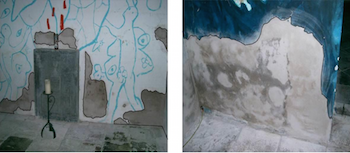
Investigating Damage to Cultural Heritage Sites with Simulation
To find out why paintings in Saint Catherine’s Chapel in the Netherlands are deteriorating, researchers from the Eindhoven University of Technology combined physical measurements and simulation.
